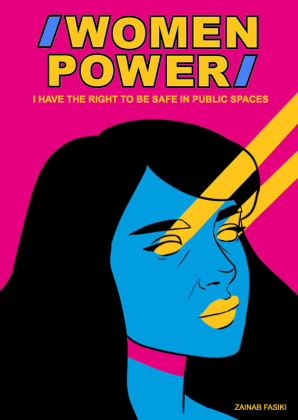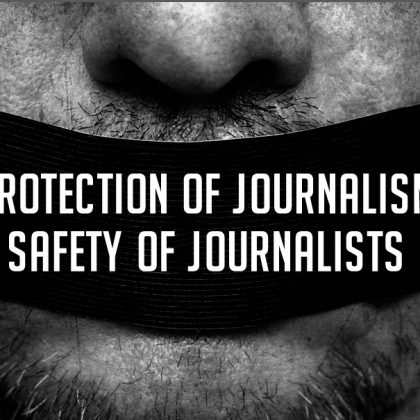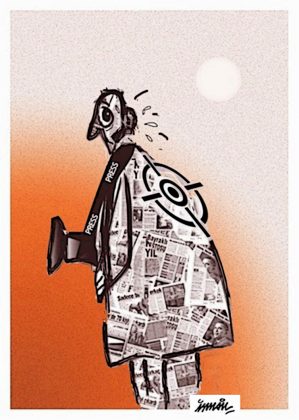Here is an essential book to address the current debate on whether or not to legislate against “fake news”, particularly in our new world of social networks.
– Oreste POLLICINO, Giovanni PITRUZELLA e Stefano QUINTARELLI “Parole e potere, libertà d’espressione, hate speech e fake news” published by EGEA in 2017.

To face the debate it is important to understand what “fake news” are: “Articles bearing news that are intentionally and verifiably false and could mislead readers” p.73. So, are not “fake”: non-intentional errors; web rumours, conspiracy theories, satire, false affirmation of politicians. The question, before talking about the need to legislate or not, is therefore to know whether “fake news” is part of freedom of expression, as defined in international conventions (especially Article 10§1 of the European Convention on Human Rights and the Article 11 of the Charter of Fundamental Rights of the EU, included in the Lisbon Treaty) and in the constitutions of democratic countries, even if these conventions provide for exceptions. The amplitude of this freedom is periodically affirmed in a constant jurisprudence of the European Court of Human Rights (ECHR) since the Handyside ruling of 1979, which states that this freedom is: “freedom even for information that” offends, upsets or disturbs“.
As the authors state:
“Freedom of expression is the cornerstone of our liberal democracies. A universal human right recognized by the international conventions of the United Nations, the Council of Europe and the European Union, incorporated into national constitutions and laws that do not result. Freedom of expression means freedom of speech, freedom to spread information, freedom to receive information. Without these freedoms, there cannot be democratic debate, democracy does not exist. But is this need to stimulate freedom of expression in democratic societies more or less superior to any alleged, unsubstantiated censorship? Either this right to receive and disseminate information must be limited to the correct information and thus to counteract bad information”.
The problem is to know if the information must be (as Europeans think) of “quality” or if the content of the information is indifferent (position closer to that of the USA, according to the first amendment of the Constitution). A debate that Oreste Pollicino develops in the book.
However, “quality information” was part of the mission and of the interest of the media before the introduction of information technology: creating a media, ensuring its life needed important investments and costs and the respect (up to a certain point) of the reader, auditor or viewer. Competition between media obliged (up to a certain point) the journalists and editors to a minimum of professionalism and verification of the news before publication.
Nowadays things are different:
– Firstly: “technological innovation has changed the way information is produced, distributed and used” p.57. For example, 5 new profiles are created every second; every day, 300 million images, 510,000 comments and 293,000 status updates are uploaded, without any quality control. Moreover, there are 81 million anonymous accounts.
– Secondly, the “Information market” on the Internet is not a true market but an oligopoly. Social networks use algorithms, search engines are manipulated with filter bubbles to ensure the transmission of information based on the tastes and wishes of the user, creating in this way “tribes” of identical thought (using machine learning to adapt to the taste and interest of the users).
– Thirdly, the very behaviour of users limits their ability to access information (91.5% stops at the first page in a search on the Internet) and immense majority does not seek to verify the information, nor to look for different opinions. Moreover, on the one hand, in front of the infinity of information and the little time available, surfing on information takes the place of deepening the information received, on the other, the amount of “useless” information, the attraction for images and for fun, lead to a world of inattention and to a logic of polarization.
So, according to the authors, “the user is locked inside the bubble built according to his tastes, preferences and prejudices” p.67. The present information world is therefore characterized by its fragmentation and polarization, producing a radicalization of the politics and centrifugal forces that the authors describe as “digital swarm“.
So, in this context, if “the” fake news” produce effects contrary to the purpose of freedom of expression by spreading untruthful messages to the community, – if these news have no social utility and do not contain any contribution to the information of individuals because they are false or tendentious – the problem will be to decide:
– Should “fake-news” be censured or do the repressive measures already provided by international and European conventions and national legislation are sufficient?
– Instead of legislations wouldn’t it be better to fight against fake and false news with true information, education of users and young people, stimulated fact-checking and encouraging those who do it on a professional way?
The legislation adopted in Germany in 2017 against “fake news and hate speech” has already led Twitter to censor the site of the satirical magazine “Titanic” because it did not understand it was satirical. This legislation therefore leads to a greater risk of blind censorship, of self-censorship, thus going against freedom of expression.
In fact, practically, it is not clear who should be responsible for online content among web operators, a responsibility limited by the European Directives on online services (2000/31 / EC) and the audio-visual media services (SMAV) directive. Who should be responsible, that is who is likely to pay the high fines provided by law: the managers of online portals, of proxy server, or service providers of content, of network, of access, of hosting, of cache?
Operators being faced with the financial risk represented by important fines, it is clear that they will (and already do) react by creating a private censorship: self-regulation (see for instance on Facebook, the censorship of the nude – even that of Gustave Courbet’s masterpiece “l’origine du monde” in 2015) according to criteria chosen by social networks without possible recourse to users, with “conditions of use” imposed unilaterally on the user, and the only possibility of recourse in the jurisdiction of American States where the firm is registered, conditions that can be considered by the European courts as unfair terms.

Comment: It seems that the proposed remedy to avoid “fake news”, that is legislation, is worse than evil. It tends to show that, once again, politicians consider citizens as children to be protected against themselves and abdicate their role of educating and informing to prefer entertainment and lie to get the votes. Perhaps it would be better if they thought to self-regulate themselves and agree not lean on low-level populism and not to play with the emotions of the citizens. Let’s wait to know more on the content of French law project against “fake news” (announced by President Macron beginning 2018) and of the European Union’s one (a working group on the subject has just been created) to analyse their content. LIBREXPRESSION will follow and come back on this crucial topic for freedom of expression of criticism and satire.
* Listen the Oreste Pollicino’s interview (in Italian) in the radio transmission “Un libro per l’Europa” of Thierry Vissol:
Un libro per l’Europa
“Parole e potere, libertà d’espressione, hate speech e fake news” di Pollicino, Pitruzzella e Quintarelli – EGEA, 2017 Sito: https://ec.europa.eu/italy/news/radio/libro_20180126_it
Link breve: |Link all’audio:









Comments
Avis Rolley
With thanks! Valuable information!
surf lessons baleal
amazing site you take care of here. Just discovered you using duckduck! Thank you all you effort into this work.
Edwardo Taran
With thanks! Valuable information!